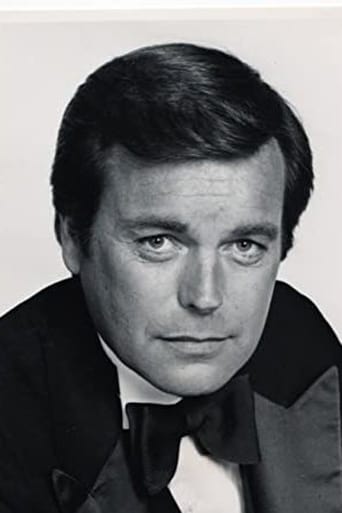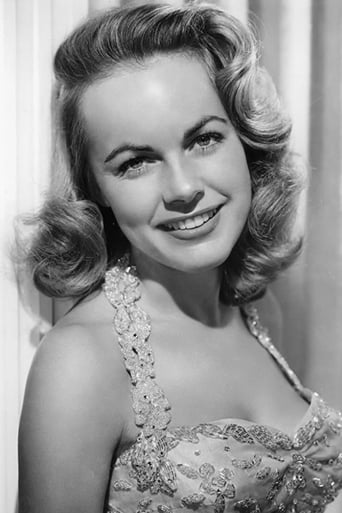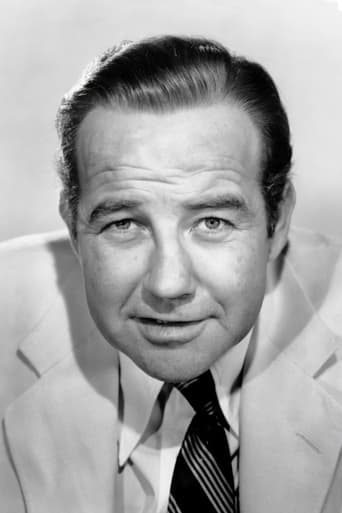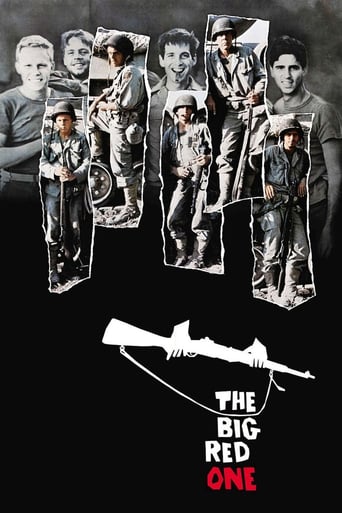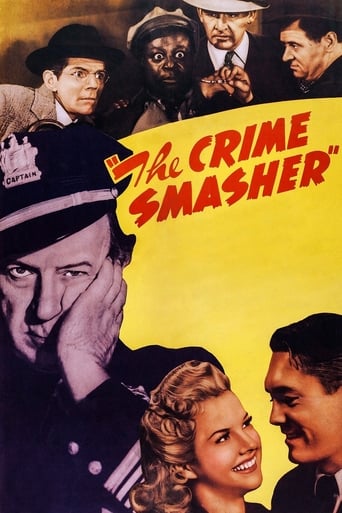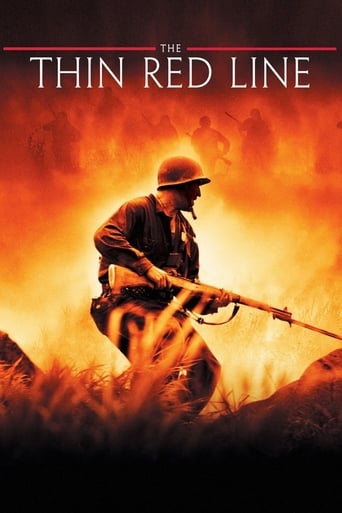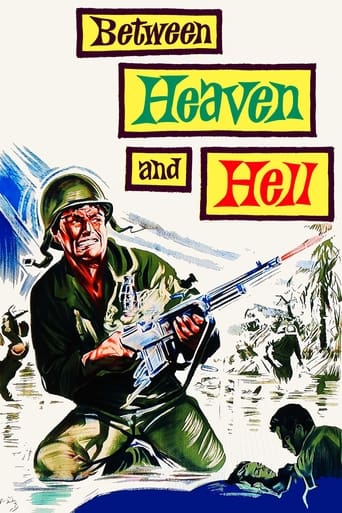
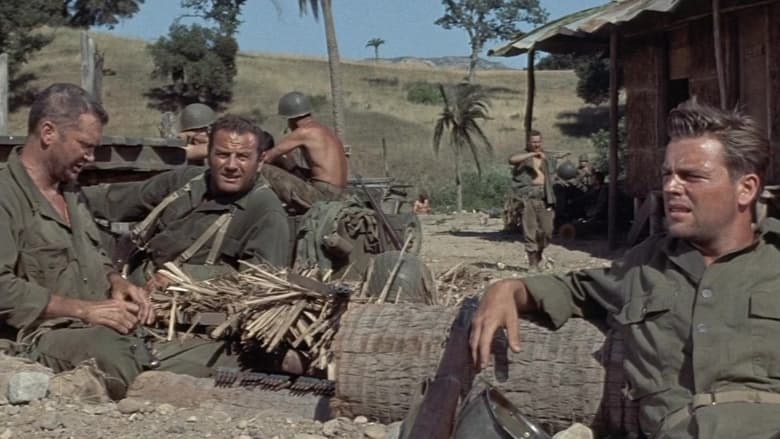
Between Heaven and Hell (1956)
Sam Gifford remembers : In prewar years he was an arrogant southern cotton plantation owner, married to the daughter of a colonel. At the beginning of the war he was mobilized with his National Guard unit as a sergeant. Came the day when, revolted by the cowardice of his lieutenant, who had fired at his own men, he hit him. Downgraded, he was sent to a disciplinary battalion. Sam now discovers his new detachment, his new commanding officer, just another cowardly brute, Captain Waco Grimes. While in combat, Sam will gradually become closer to the privates, working-class people he used to despise. He will become another man, a better man.
Watch Trailer
Cast
Similar titles
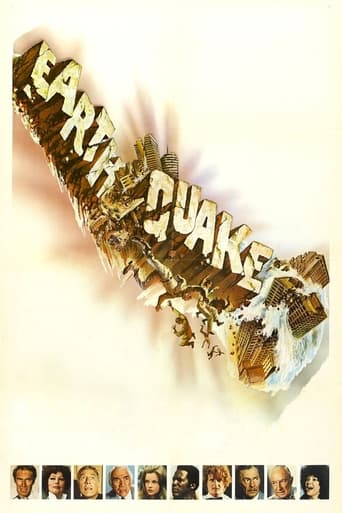
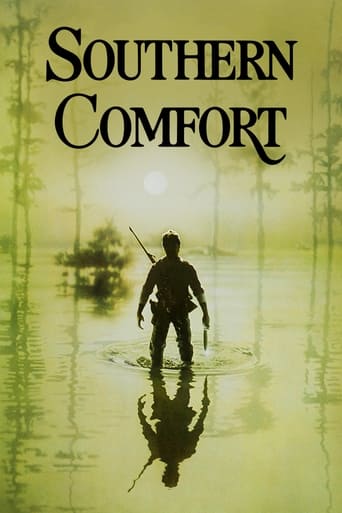
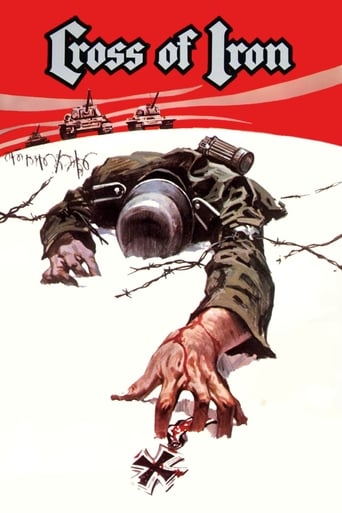
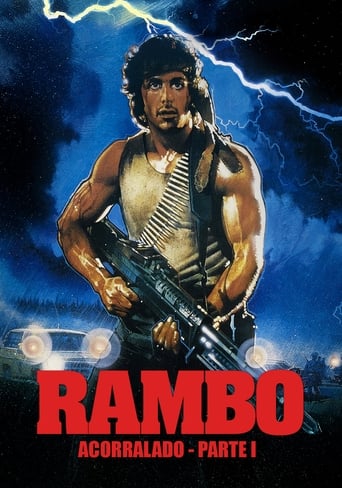
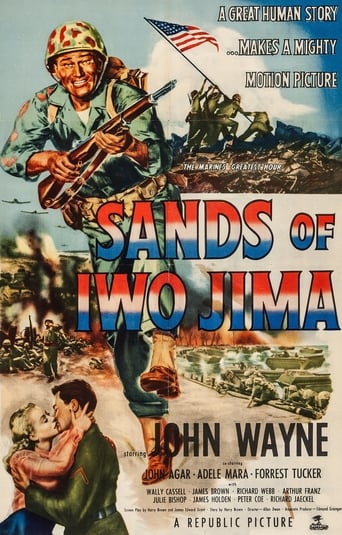
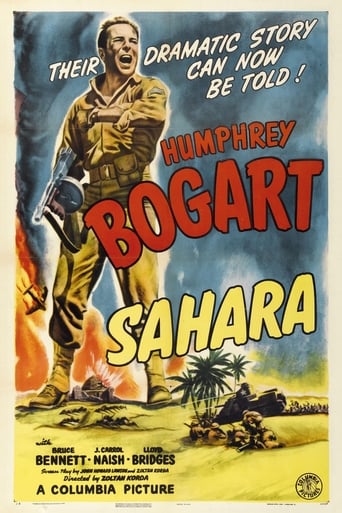
Reviews
Save your money for something good and enjoyable
People are voting emotionally.
The story, direction, characters, and writing/dialogue is akin to taking a tranquilizer shot to the neck, but everything else was so well done.
Strong acting helps the film overcome an uncertain premise and create characters that hold our attention absolutely.
See it – A vastly underrated and reflective war movie starring Robert Wagner and Buddy Ebsen. This movie has been nearly forgotten over the years, and it's a shame. Much of the story is told in flashbacks. There's very good character development. And best of all, there was much more action than I expected. A bit slow toward the beginning, but there is a really cool action sequence in one of the flashbacks where Wagner and some of his men assault a cliff-side machine gun nest. When the current story picks back up after the flashbacks, there is plenty more action, including an exciting and desperate ending. 3.5 out of 5 action rating
"Violent Saturday" director Richard Fleischer's explosive, bullet-riddled epic "Between Heaven & Hell" combines the plot about clashes between subordinates and their superior officers set against the backdrop of World War II combat in the Pacific with the problem melodrama about Old and New South social consciousness. Robert Wagner starts out as an elitist, bourbon & branch water swilling, Southern cotton gin operator who displays no sympathy for his poor sharecroppers. Before this sturdy 94-minute, Cinemascope movie fades out, the protagonist turns over a new leaf and becomes a more considerate individual who is concerned about the welfare of his workers. The clash between officers in Fleischer's film reached the screen a mere six days before director Robert Aldritch's cynical wartime thriller "Attack." "Between Heaven and Hell" came out October 11, 1956, while "Attack" debuted October 17, 1956. Nevertheless, "Attack" ranks as a more compelling outing because Robert Wagner's NCO doesn't kill the pusillanimous officer, while Lt. Harold 'Harry' Woodruff (William Smithers) in "Attack" kills a cowardly officer. Interestingly enough, Buddy Ebsen appeared in both movies as a G.I. Unlike "Attack," "Between Heaven and Hell" confronts the issue of inequity between poor whites and affluent whites in the Old South. Actually, "Attack" surpasses "Between Heaven and Hell," but the latter picture adds weight to the trend in American World War II movies about clashes between commanders and subordinates. Like the Aldritch film, "Between Heaven and Hell" painted an unsavory portrait of life in the military that showed American soldiers with feet of clay that films such as "The Naked and the Dead," "Tarawa Beachhead" and "The Victors" would build on in later years.The Fleischer film opens with two soldiers escorting Private Sam Francis Gifford (Robert Wagner of "Titanic") to see Lieutenant Colonel Miles (Frank Gerstle of "D.O.A") about a disciplinary problem after Sam has been arrested for attempting to kill a superior officer. Matters are complicated somewhat because Sam has received a Silver Star for dangling himself off the side of a cliff to sling explosives into a Japanese machine gun emplacement in a cave, a setting that suggests that this exploit occurred on Guadalcanal. Since Sam has won the medal, Miles prefers to send him to serve with George Company rather than imprison him in Leavenworth. The grim dialogue between Sam and the driver of the jeep, Private Willie Crawford (Buddy Ebsen of "Parachute Battalion") suggests that prison would be preferable. Crawford observes as he hands his M-1 rifle to Sam. "Go ahead and kill someone, I don't care. How did you get in this outfit?" Sam replies without enthusiasm, "It was that or Leavenworth." Crawford shrugs, "Shoulda taken Leavenworth." Sam meets his new superior officer, off-his-rocker Captain 'Waco' Grimes, Commanding Officer, who stipulates that nobody can call him by his rank. Waco dreads that a Japanese sniper will kill him, so he insists that nobody refer to him by his rank. Waco keeps two Thompson machine-gun wielding soldiers at his sides at all times, Private. Swanson (Skip Homeier of "The Gunfighter") and Private Millard (Frank Gorshin of "Batman"), and they wear only t-shirts on this upper chests rather than proper combat fatigues. Waco makes Sam his radio operator and Sam stretches out on the ground after Waco dismisses him and stares into a mud hole. The surface of the mud hole ripples when Sam tosses a pebble in it and the film shifts into flashback mode some 15 minutes into the action to take us back before Pearl Harbor to the South when Sam was a heartless but well-heeled cotton gin operator who had married Jenny (Terry Moore of "Mighty Joe Young") and they were living high off the hog. We learn Jenny's father, Colonel Cousins (Robert Keith of "Branded"),commands Sam's National Guard outfit and organizes it to mobilize for duty. Before his call to duty after Pearl Harbor, Sam reprimands the laziness of his sharecroppers and treats them like dirt. Our hero buddies up with several G.I.s and they become fast friends until they die. Foremost among them is a country boy named Private Crawford. It seems that Sam and his friends were checking out a village when an officer got a case of the nerves and shot Sam's three friends. Sam clobbers the lieutenant with his rifle butt and winds up behind the wire."Between Heaven and Hell" suffers minimally from the usual idiocy that afflicts many Hollywood World War II movies. Specifically, American officers wear their rank on the front of their helmets—rather than the rear--making him easy for vigilant Japanese snipers. Unlike most World War II movies, an officer here who dons his helmet with his rank prominently on show dies from a sharpshooting enemy marksman. Top-notch photography by "The Day the Earth Stood Still" lenser Leo Tover gives "Between Heaven and Hell" a sprawling, virile appearance, that belies its actual location at the Twentieth Century-Fox ranch in the Santa Monica Mountains, while "Dead Reckoning" composer Hugo Friedhofer received an Academy Award nomination for his orchestral score. Fleischer conjures up commendable suspense and excitement primarily with the standard theme of friendship; soldiers who buddy up suddenly have to confront the loss of their new-found friends. Meanwhile, this above-average combat opus boasts a cast of first-class thespians that includes Broderick Crawford, Buddy Ebsen, Brad Dexter, Ken Clark, Frank Gorshin, Skip Homeier, and Harvey Lembeck. Fleischer and "D-Day, The Sixth of June" & "A Walk in the Sun" scenarist Harry Brown, who adapted Arkansas-born novelist Francis Gwaltney's 1955 fiction book "The Day the Century Ended," give their military fans more than enough firefights to past muster. Interestingly, Rod Serling tried without success to adapt the Gwaltney novel. Moreover, Gwaltney was a Pacific campaign veteran. American Film Institute records state that,John Sturges was scheduled to helm it. Guy Madison was up for the Robert Wagner role and Twentieth Century Fox contract actress Joan Collins was considered for the role that Terry Moore inherited.
I expect this 1956 war movie was passed over by critics because its star, Robert Wagner, was considered just another light-weight pretty boy of the day. Nonetheless, the movie is better than just another celebrity vehicle, while Wagner is a much better actor than his good-looks suggest, and, I think, time has proved.Two features distinguish this film from others of the day. First is the subplot of tenant farmers and the class barrier separating them from the land owners they work for. A number of pre-Vietnam movies dealt with racial differences in the military; this is the only one I know of dealing with white Southern sharecroppers and their difficulties. Wagner's unit is a National Guard battalion which means that the unit is made up of men from the same locale with the same class distinctions of civilian life carried over into the ranks of the unit itself. Thus, Robert Keith a patriarchal rich man in civilian life is in similar command of the battalion as the colonel, while Tod Andrew's land owner heads up a platoon as a lieutenant. In short, land owners make up the ranks of commissioned officers, while share-croppers make up the enlisted ranks.Now, the screenplay departs from this logic in Wagner's case. Though a land owner, he's not an officer; instead he's a sergeant in the enlisted ranks. The reason I think is pretty clear. Officers do not fraternize with enlisted men. But for the plot to deliver its main message, it must break down the social barrier between tenant farmer Buddy Ebsen and land owner Wagner, and that requires that they fraternize. Hence, the screenplay makes Wagner an enlisted man. But this curious departure is for a good cause. Only by getting to know a man (Ebsen) personally can the haughty Wagner overcome the cruelty he has shown his share- croppers in civilian life. The lesson here is similar to that of racially inspired filmsit's personal contact that ultimately humanizes and breaks down social barriers. Thus, once the social distance is overcome, the two can become friends and equals and be carried off to the same hospital ship, side-by-side. A humane message, well delivered.The second feature is perceptively pointed out by Kayaker36. There's an unmistakable homosexual subtext to Broderick Crawford's command center scenes. Today, that wouldn't merit much mention, but remember this is 1956 when about the only thing worse than being a gay was being a communist. And to even hint that gays might be in the militaryand in a position of commandis really quite remarkable. The screenplay is adapted from a novel, and I suspect the idea comes from the novel and was rather boldly adapted into the screenplay. But, whatever the source or reason, this is the only war film of the post-war era I know of to even hint at that forbidden topic.Anyway, the movie is well produced by TCF, with just enough battle scenes to satisfy war- movie fans. The screenplay is also unusual in its depiction of death by friendly fire, a much more common occurrence among soldiers than movies led us to believe. On the other hand, note how, in passing, the script works in a love interest for Wagner so that Terry Moore's name could go up on the marquee and broaden audience appeal. Note too, how Crawford gets a rather lengthy and unnecessarily histrionic scene to justify, I suppose, his starring credit. Remember, he was only a few years past his Best Actor Oscar, at a time when his name still carried audience weight. Actually, combining this film with Tony Curtis's 1954 war movie Beachhead would make a revealing double-feature, showing again how slick and entertaining films from Hollywood's studio period could be. This may not rank with the best or most suspenseful war films of the period. But it does remain an interesting oddity.
I have a large collection of war movies and consider this one to be among the best ever made. Many of the war movies have what I consider to be too many flashback scenes of home and try to become love stories with a few battle scenes. These scenes in Between Heaven and Hell actually have a real purpose in the story. More than any war movie that I have seen, this one shows a trend in American history that is often overlookthe fact that wars and the men who serve in them traditionally return home with a more egalitarian outlook, hungry to reform the society that they left. Between Heaven and Hell shows a man's transformation into a better person as a result of his war experiences. Sam Gifford is a man on the edge of breaking from the strain of war. He has experienced loss and hardship and realized that in the past he has been the unnecessary source of it for others. Between Heaven and Hell has a psychological realism that most war movies lack. It shows war heroes for what they aremen who rise above their ordinary selves to do extraordinary things in adversity. This is great story telling with great characters.

